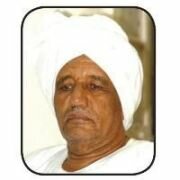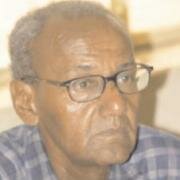In the last column (4-4) I shall dwell on the issue of heightening the Roseires Dam and the issue of the 6 agreements signed
with Tigeri Province some years ago. In this column I thought of reflecting on a very important project, which I kept watching closely, in which the hands of official Egypt were extremely visible and largely succeeded in totally dwarfing an otherwise grand idea .This idea could have made of the Sudan the granary of the world if not of the Arab and African worlds. This project idea is the Arab Authority for Agricultural Investment Development (AAAID).
The project idea was introduced by Ibrahim Moneim Mansour the then minister of finance in 1974 at the annual meeting of the Arab financial institutions in Beirut. The Arab Fund for Economic and Social Development (Arab Fund for short)at that time was under the Chairmanship of Saib Jaroodi (Lebanese). The Arab Fund took up the idea and one of the experts of the Arab Fund (Khalid Tahseen-an Iraqi national) was appointed to undertake the feasibility study.
Two years later the Arab League convened a meeting in Rabat, Morocco to establish what later became AAAID. The visible objective was to convert the Sudan into the granary of the Arab world because of its unusual natural resources. In this meeting the Sudan was represented by a new minister of finance (Mamoun Bheiry) because Ibrahim Moniem Mansour who initiated the idea in 1974 meeting was relieved from his post!!In addition to Bheiry was Sudan’s Ambassador of Sudan to Morocco (late retired officer Al Rasheed Nour El Din).The Egyptian delegation was in full force against the project and establishment of such a project. The reasons were obvious since that will mean Sudan will be able to acquire huge funds from the Gulf countries in addition to more use of the Nile water resources.
The Egyptian delegation in a cunning way proposed the establishment of a small company with a small capital. The Sudanese delegation knowing the hideous intentions of the Egyptian delegation strongly protested and walked out of the meeting. The late King of Morocco seeing the tension intervened and the accepted idea was a respectable organization with very massive capital of some billions of US $.Then Khalid Tahseen who carried out the study was proposed as head of AAAID. One member of the Egyptian (Dr. Hassan Abass Zaki) was said to have returned to Cairo and told president Al Sadat that Bheiry the Sudanese minister of finance will take all the money of the Arab countries and invest it in Sudan’s agriculture!!(This was told to me by Bheiry himself).
The Egyptians not tired of intrigues noted that since there was an Iraqi citzen as head of an Arab League institution (Dr. Abdel Al Al Sakban- Secretary General of the Arab Economic Unity) then it will not be fair to have two Iraqis heading two important institutions of the Arab League. Therefore, a compromise was reached and it was decided to give the Presidency of AAAID to Egypt. Egypt nominated Dr. Ibrahim Badran.Dr. Badran became the chief executive and of AAAID.The Sudanese side was not very happy since they knew the Egyptian attitude at the initial meeting in Rabat. Moreover, there was no local mechanism which could have supervised the conduct of Dr. Badran.That is why it could be fairly said that it was possible for Badran to dwarf AAAID to the size desired by subtle policies dictated on Badran by his government. This damage is known to many people in Sudan specially experts who used to work in AAAID. Moreover, late president Nimeiri made publicly twice very harsh and unfavourable comments on the performance of AAAID and on Badran specifically. AAAID was not able to convert the Sudan into the granary of the Arab world. The empty granary is proved by the high level of food imports by Sudan as well as the other Arab countries from the rest of the world.
As mentioned earlier Egypt never wanted the Sudan to become strong economically by using Arab money. Becoming economically strong meant that Sudan will consume more of the Nile waters. The increased demand of Nile water was thought by Egypt to happen by necessity directly or indirectly on account of Egypt as the share of the riparian countries are at a minimum level. Egypt’s resistance in this case proved that the agenda remained now as it was before. At no one time in history was Egypt keen to accept a strong Sudanese backyard!!
Last, the writer having been a careful observer of such developments has a strong unexplained hunch that the relieving of two powerful finance ministers (Ibrahim Moneim Mansour-the initiator of AAAID and Mamoun Bheiry-the ex President of the African Development Bank-Kenana) must contain some hidden motives than a mere ministerial change. More to follow.
-
What after this Decisive Move Dear Minister
-
London Diary: Our Ancient History Highlighted/ Sudanese-British Trade...Next >



